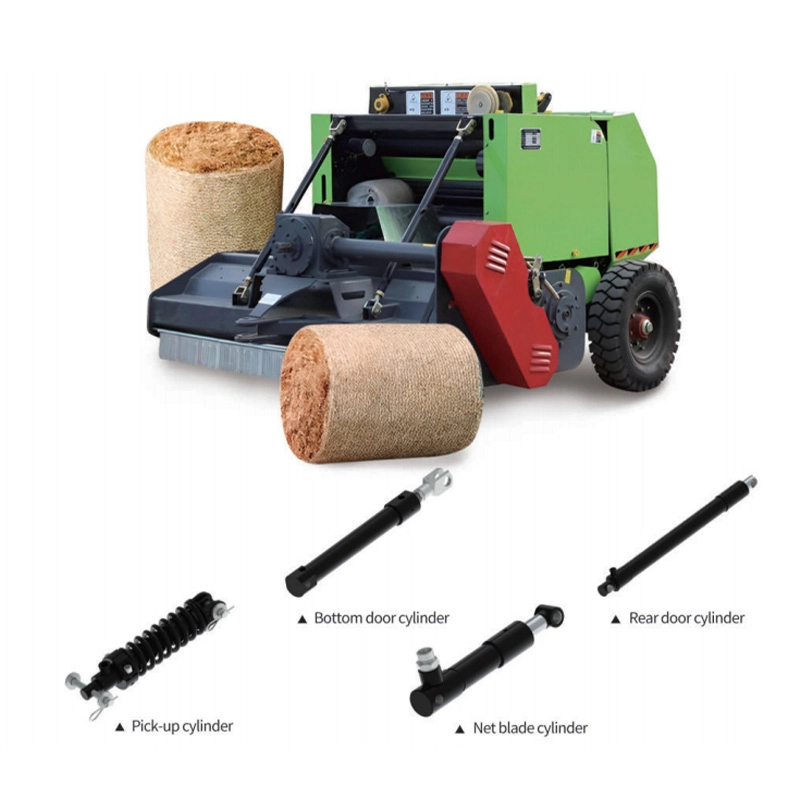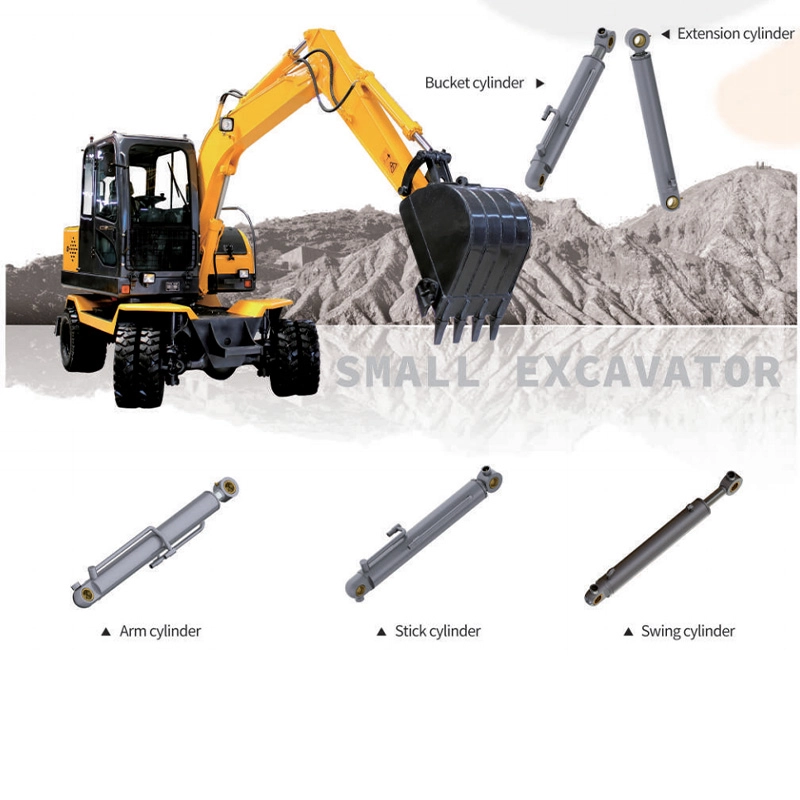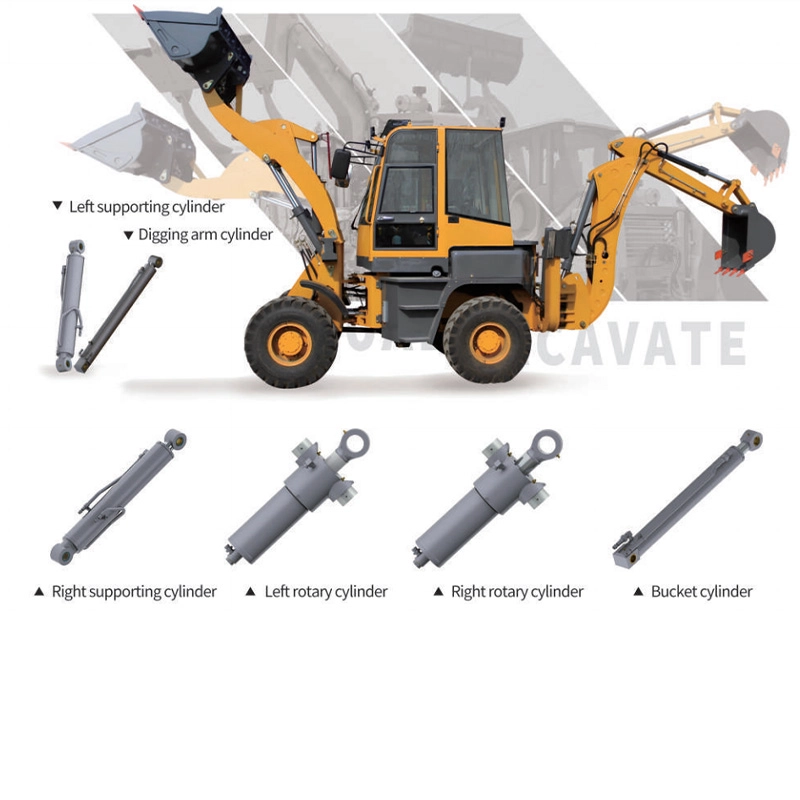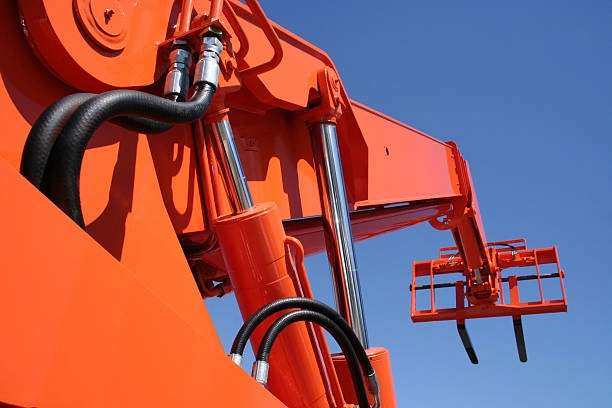
The Importance of Hydraulic Cylinder Maintenance
Key Benefits of Regular Hydraulic Cylinder Maintenance
Hydraulic cylinders are super important. They make machines run in stuff like building, farming, and factories. Taking care of them keeps them working great. It also makes them last a long time. Checking them out often stops big messes that cost a ton to fix. These cylinders push with lots of power and move just right. That’s why they’re awesome for hard jobs. Plus, keeping them in shape makes things safer. You can catch problems before they get dangerous.
How Neglecting Maintenance Can Impact Performance
Skipping care for hydraulic cylinders is bad news. Over time, seals get old and leaky. That makes the machine weaker. A bent piston rod? It can mess up how things move. Sometimes, it stops everything. Dirt sneaking into the fluid can wreck the cylinder’s insides, too. This makes the machine act up. Fixing it costs more cash. And when machines sit broken, you lose time.
The Role of Hydraulic Cylinder Repair Tools in Maintenance
You need good tools for hydraulic cylinders repair. Really nice hydraulic cylinder repair tools help folks take cylinders apart safely. They let you check every bit carefully. Then, you put it back together right. Stuff like floor vices or bench vices holds the cylinder tight while you work. Good tools make fixes super exact. They stop you from breaking more stuff.
Signs That Indicate the Need for Hydraulic Cylinder Overhaul
Common Symptoms of Wear and Tear in Hydraulic Cylinders
Hydraulic cylinders get worn out after a while. They might move slower than usual. Or you hear odd sounds when they’re on. Scratches or marks on the piston rod show up a lot. Those hurt how it runs. Looking at seals is a must. If they’re beat up, leaks happen. Spotting these clues early lets you fix things quick.
Identifying Leaks and Seal Failures in Hydraulic Cylinders
Leaks are a big hint something’s wrong. Usually, it’s bad seals or busted parts inside. Oil dripping from the cylinder’s body is a sign. If oil’s around the piston rod, don’t wait—fix it fast. Strong seals stop leaks and keep the pressure good. Also, check the fluid for dirt. That can show if the insides are starting to wear out.
When to Consider a Complete Hydraulic Cylinder Overhaul
Sometimes, little fixes just won’t do. That’s when a full hydraulic cylinder overhaul comes in. If the cylinder’s got big damage—like cracks in the barrel or a bent rod—it’s time. Swapping old parts for tough new ones can make it work great again. For example, Shining Hydraulic lets you customize stuff to fit what you need.

Best Practices for Effective Hydraulic Cylinders Repair
Steps to Ensure a Successful Hydraulic Cylinder Repair Process
- Get Ready: Turn the machine off safe and sound. Wipe down the cylinder’s outside so no dirt gets in.
- Take It Apart: Lock the cylinder in a vice. Pull it apart real careful with the right tools.
- Check Everything: Look at all the parts close. See if anything’s worn or broken. Swap out bad stuff.
- Clean It Up: Get rid of any gunk inside. Flush out old, dirty fluid.
- Put It Back: Add new seals if you need ‘em. Oil up moving parts good. Put it together nice and neat.
- Test It Out: Try the cylinder in a safe spot. Make sure it’s working before you stick it back in the machine.
Doing these steps real careful keeps hydraulic cylinders repair solid. It makes the whole system run better.
When It’s Time to Replace Your Hydraulic Cylinders
Factors to Consider Before Replacing a Hydraulic Cylinder
Hydraulic cylinders are a big deal in lots of work. They power up heavy machines and tools that need to be exact. But they don’t last forever. A few things tell you when it’s time to get a new one.
First, look at the damage. Leaky oil, bent rods, or a beat-up housing are bad signs. Checking often helps you catch this stuff early.
Next, think about fixes. If you’re always patching up the same cylinder, a new one might save you money. Small scratches or old seals? Those can be fixed. But big cracks or bent parts usually mean you need a new best hydraulic cylinder.
Last, check what your machine needs. If it’s gotta work super hard, an old cylinder might not keep up. A newer one could be way better.
Comparing the Cost of Repairs vs. Replacement
When a cylinder’s acting up, you gotta pick: fix it or get a new one? Money talks here. Fixing might seem cheap at first. But if you keep fixing, it gets pricey.
Patching up little things, like seals or small scratches, can work for a bit. But if big parts—like rods or barrels—are trashed, fixes don’t last long. Then, a new cylinder’s the smarter move.
New cylinders save you from constant repair bills. They run smoother and hold up better, too. The best hydraulic cylinders have tougher materials and cooler designs. Like, Shining Hydraulic makes custom ones for hard jobs.
Sure, fixes can keep an old cylinder limping along. But a new one keeps things running strong. That cuts downtime, which is huge for folks who can’t stop working.
Choosing the Best Hydraulic Cylinders for Your Needs
Features to Look for in High-Quality Hydraulic Cylinders
To pick the best hydraulic cylinder, you gotta know what makes ‘em good. Tough cylinders handle rough jobs and keep going strong.
What they’re made of is key. Cylinders with chrome-plated or stainless steel don’t rust easy. They’re perfect for messy spots like farms or construction sites.
Seals matter a ton, too. Awesome seals stop leaks and keep pressure steady. That means the cylinder works great for years. Strong piston rods with smooth surfaces help, too. They slide easy and don’t wear out fast.
Some cylinders have neat tricks, like cushioning to soften bumps. You can also customize things like how far they move or how they’re mounted. That makes ‘em fit your job just right.
How to Select Reliable Suppliers for Replacement Cylinders
Getting a good supplier is super important for new cylinders. A solid supplier gives you stuff that fits your machine perfect.
First, check their rep. Go for companies that’ve been around a while. Read what other folks say about ‘em. Shining Hydraulic’s got a name for making tough, custom cylinders for all kinds of work.
Look at their stuff. A supplier with lots of choices can handle different jobs. They should cover farming, building, and factory needs. Make sure they do custom options, too.
Check for official stamps. Those show the supplier’s stuff is legit. Good ones also help you out with tech questions and after you buy.
Last, see how fast they ship. Quick delivery keeps your work going. Downtime’s a pain, so pick someone who gets stuff to you fast.
Frequently Asked Questions
What are common signs that indicate it’s time to replace a hydraulic cylinder?
Leaky oil, bent rods, worn seals, scratched-up housing, or lots of breakdowns are red flags.
How do I decide between repairing or replacing my hydraulic cylinder?
Think about how much you’re fixing, how bad the damage is, what your machine needs, and what saves more money long-term.
What materials are best for durable hydraulic cylinders?
Chrome-plated steel and stainless steel are the best. They fight rust and handle tough spots.
Can I customize hydraulic cylinders for specific applications?
Yup! Lots of suppliers let you pick stuff like stroke length, mounting styles, or pressure levels.
If you need help picking or replacing hydraulic cylinders, hit up Yantai Shining Hydraulic Technology CO.,LTD. They’ve got smart fixes for all kinds of work!




